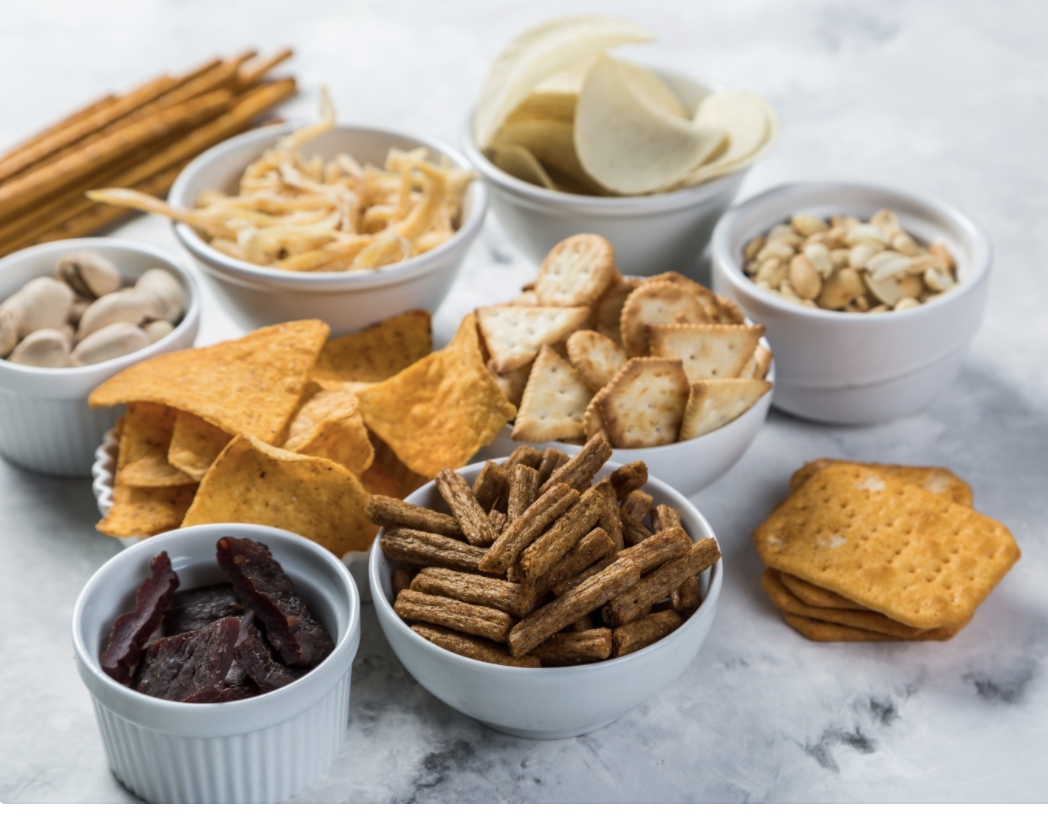Snack Attack: Rethink Snacks While Creating Healthier Meals
July 1, 2021

We’ve certainly spent a lot of time covering the benefits to your brain and body of eating a healthy diet. So while we hope you’ve taken steps to rethink your meals, it’s probably also time to consider what you’re eating between meals. Generally speaking, there’s nothing objectively wrong with eating a snack during the day. A snack can be a good source of energy or solve your temporary hunger so that you don’t overindulge once mealtime arrives. The dilemma comes when that snack lacks nutritional value or even adds harmful ingredients to your daily diet or extra weight to your body. But don’t feel embarrassed if you fall into that category: $14 billion a year is spent on marketing to lure you into eating unhealthy snacks, which is, in reality, what most Americans ingest. In fact, data show that ¼ of Americans snack multiple times/day (for reasons including hunger, treating oneself, or even ease of access) and some 40% in a recent survey said they even skip a meal in place of snacks.
Experts suggest the ideal is a snack of 150-250 calories and should include protein, fiber, or whole grain, if possible, to satisfy your hunger and keep you full longer. Other practical suggestions when it comes to snacking? Take a good look at the nutrition label and completely avoid anything that contains sugar or high fructose corn syrup within the first several ingredients. You’re also advised to always apportion out a small amount rather than allowing yourself full and continuous access to an open bag or container. Ideally, you should pair a protein with a carb to keep yourself full for the longest period of time- for example, an apple with some cheese, some hummus with carrots, or a tablespoon of peanut butter with a few whole-wheat crackers. In fact, researchers are now on the hunt for ideal snack foods- containing fiber to support a healthy gut microbiome- with 2 recent pilot studies showing a positive relationship between these fiber snacks and better gut health. Given how popular snacks are in the Western diet, these researchers are hoping to use snacks as a vehicle to support healthy gut microbiome, essential for so many aspects of our well-being.
For more in the category of healthy snacks, consider this recent post in Consumer Reports which touts the important value to your health and well-being of regular berry eating, especially during the fresh berry season. They’re known for their extraordinary anti-aging properties and their ability to be easily frozen or kept in the fridge for long periods using covered containers. And while you’re snacking on those berries, you may want to mix in a handful of nuts and seeds, which are emerging as essential components of a healthy diet, with their plant protein, dietary fiber, and heart-healthy fats.
But let’s be frank about what you really need to avoid when snacking. First, new research published in the Journal of the American Heart Association makes clear what you probably already know: starchy snacks containing such ingredients as potatoes (we’re looking at you, potato chips) are associated with a 50% + increase in all-cause mortality and a 44-57% increase of cardiovascular disease mortality. (And conversely, in this study, eating fruits, veggies, or dairy at specific times was associated with a reduced risk of death). And if you think you’ll be safe switching to something sweet instead as a snack, think again- and take a look at this list of unhealthy snacks that dieticians suggest you immediately toss.







